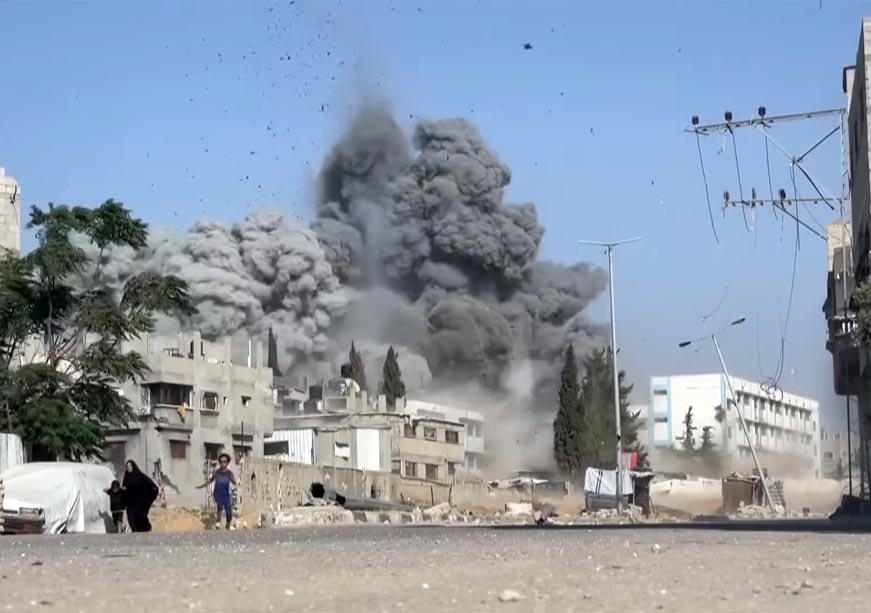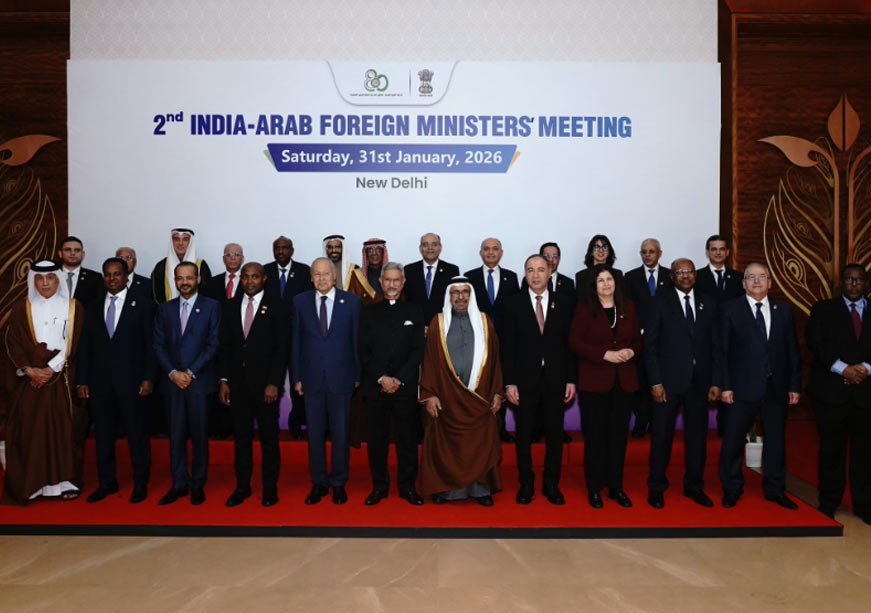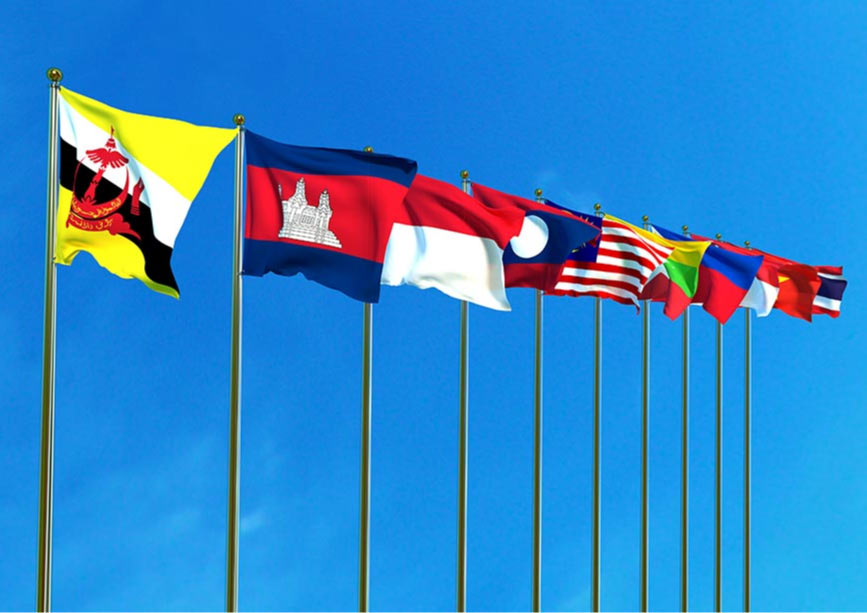Israel’s strike on Qatar has upended regional alignments, forcing neighbours and allies alike to reassess their choices.
Although the immediate tremors of Israel’s attack against Qatar on 9 September 2025 can still be felt across the Arabian Peninsula, the geopolitical shockwave from the attack continues to reverberate throughout the entire Middle East and its wider neighbourhood.
For Qatar, the response has been an amalgamation of controlled fury and a deft diplomatic offensive. Doha delivered formal letters to the United Nations Security Council, pressing it to address the violation of its sovereignty and mobilised support from the Arab-Islamic nexus during an emergency summit. Qatar’s leaders publicly framed the attack as “barbaric” and an assault on mediation. As the second major attack on its soil in months, first by Iran and now by Israel, a stringent response from Qatar is critical to establish deterrence for such potential future attacks.
Qatar’s leaders publicly framed the attack as “barbaric” and an assault on mediation.
For Israel—the instigator—the attack is becoming an unmitigated strategic disaster. The strike aimed to target Hamas leaders, but its head officials have survived. Meanwhile, the United States (US) President Donald Trump stated that he was “very unhappy” about the strike. Overall, the operation not only failed to achieve its objectives but also invited sharp international scrutiny, even from Israel’s closest ally. This positional weakening is evident in the overwhelming majority of 142 countries that voted for a two-state solution in the UN General Assembly (UNGA), just days after the strike.
Probing further, the attack can have far-reaching spillover effects, as it not only impacts the involved parties but also neighbouring middle powers. The following study aims to analyse these powers’ reactions to the escalating conflict.
Views from the Epicentre: Perceptions of MENA powers
Qatar’s Gulf neighbours have responded with remarkable celerity. Kuwait and Oman have showcased visible alarm and solidarity, treating the attack not as a Qatari problem but as a challenge to Gulf collective security. Support from Saudi Arabia, the United Arab Emirates (UAE), and Bahrain was evident in the public condemnations, albeit with a calibrated tone. Riyadh denounced the strike, Abu Dhabi summoned Israel’s deputy ambassador, and Bahrain affirmed strong support for Qatar. However, this episode sharpens the already long-standing disagreements over Qatar’s support for Islamists, which was one of the primary reasons for Qatar’s 2017 blockade by Saudi Arabia, the UAE, Bahrain, and Egypt. Being signatories of the Abraham Accords, the situation is even more complex for the UAE and Bahrain. The UAE, arguably Israel’s closest partner in the region, might rethink its relationship with Israel, as evidenced by the UAE’s cancellation of Israeli participation in the Dubai Airshow. However, Bahrain—which received Israel’s new Ambassador in late August 2025—appears to be still calculating its next move and has yet to attempt any significant diplomatic downgrades with Israel. Furthermore, Saudi Arabia, which was inching closer to normalising ties with Israel, probably feels more confident now in its decision to resist this normalisation.
Looking north, Tehran has also predictably condemned the attack, describing it as a “highly dangerous and criminal act”. Despite an attack on Hamas, a member of Iran’s ‘Axis of Resistance’, the primary beneficiary of the crisis is undoubtedly Iran. Since the developing Gulf-Israeli security axis aimed at containing Iran has fractured, Israel has possibly replaced Iran as the most critical threat to the Gulf. It has allowed Tehran to pivot its propaganda and position itself as a solidifier of Muslim unity against Israel, a powerful message amplified through its media channels. The attack provides retroactive justification for Iran’s network of armed factions to deter an aggressive Israel.
Since the developing Gulf-Israeli security axis aimed at containing Iran has fractured, Israel has possibly replaced Iran as the most critical threat to the Gulf.
Iran’s western neighbour—Türkiye—has reacted with fierce condemnation rooted in a complex strategic reality. Ankara, known for supporting Palestine, has used the attack to rally support, with President Erdoğan describing it as state terrorism. Like Qatar, Türkiye also engages with controversial non-state actors, but the strike underscores the risks of such a policy. Unlike Doha, however, Ankara’s North Atlantic Treaty Organization (NATO) membership may offer it a greater measure of protection.
Moving across the Mediterranean to Egypt, the response has been measured condemnation layered with strategic calculation. Cairo officially denounced the attack, but a strike on its fellow Israeli-Hamas mediator presents a potential opening for Cairo to reassert its own diplomatic primacy. However, the brazenness of the Israeli operation is deeply unsettling for Egypt’s security establishment. The event forces a difficult choice: exploit the situation to assert influence or adopt a more cautious approach in a region where the rules of engagement have been so violently rewritten.
Across the Mediterranean, the European Union (EU)—a key neighbouring actor—has been reassessing its longstanding cooperation with Israel amid the deepening conflict, while it strengthens ties with the six Gulf Cooperation Council (GCC) states, including Qatar. However, the EU’s capacity to change the cooperation framework with Israel and alter the partnership’s dynamics is limited, owing to a lack of convergence between its Member States’ positions.
The EU’s Credibility Test: From Rhetoric to Action
The two dates—20 May 2025 and 18 July 2025—carry considerable symbolic importance but with different strategic meanings. The former marks the EU’s announcement to review Israel’s compliance with the ‘human rights clause’ of the Association Agreement (AA), which has been structuring the parties’ political and economic cooperation for 25 years. The review process, with the possibility of the Agreement’s suspension, was initially requested by the Netherlands because of “Israel’s blockade of humanitarian aid deliveries to the Gaza Strip” and “the proposed new system for aid distribution […] seemingly being incompatible with international humanitarian law and principles.” The review concluded that there may be grounds for suspension. However, it has not been enacted yet, as a temporary halt of the AA is subject to the EU Member States’ unanimous approval. A consensus of such sorts currently seems to be absent. Nonetheless, as declared by the Union’s High Representative for Foreign Affairs, the “EU will also consider next steps, if necessary, based on developments on the ground.” The “Commission (has already) proposed to partially suspend Israel’s participation in Horizon Europe”, one of the EU’s flagship funding programmes, to which Israel has been associated for more than a decade. This decision falls within the EU’s competence and does not require the support of all its Member States.
In parallel, contrary to the deteriorating dynamics of EU-Israel relations, the Union is elevating its relations with each GCC country. Consistent with this logic, 18 July 2025 marks the adoption of the EU’s mandate to launch bilateral Strategic Partnership Agreement (SPA) negotiations with all six GCC states. These SPAs are comprehensive in nature and seek to deepen economic, political, and cultural cooperation between the parties. They also aim to acknowledge the strategic importance of the Gulf states as key regional actors for the EU’s external action. Such partnerships, based on shared priorities and overlapping interests, are of particular importance in an increasingly volatile geopolitical landscape amid growing conflict escalation and the instrumentalisation of economic dependencies. As Lucie Berger, the EU’s Ambassador to the UAE, stated, “In this fragmented world, strategic partnerships are the most important currency.”
Considering the prospects of these partnerships and the deepening crisis in the Middle East, opposing dynamics are unfolding regarding the EU’s regional engagements with the Gulf states and Israel. The former are becoming the Union’s strategic partners, while cooperation with the latter faces significant challenges. As such, the EU’s external action seems to undergo substantial changes in the region. However, these dynamics are facing a new test after Israel’s 9 September attack on Hamas leaders in Qatar, a country with which an EU SPA negotiation is underway. In a swift reaction, the Spokesperson for EU Foreign Affairs and Security Policy stated that Israel “breaches international law and Qatar’s territorial integrity” and expressed “full solidarity with the authorities and the people of Qatar, a strategic partner of the EU.” The Union’s engagement in supporting “all efforts towards a ceasefire in Gaza” has also been reiterated.
The US-backed security architecture now stands in question: what credibility does an American guarantee hold if it cannot prevent one ally from striking another?
In view of the conflict escalation, the lasting crisis in Gaza, and the Union’s aim to strengthen relations with the Gulf states, the form and extent of the EU’s future engagements with Israel can significantly challenge its regional stance, credibility, and reputation. The absence of new, substantial EU actions vis-à-vis Israel could reinforce existing criticism concerning the double standards the Union may apply to certain partners. The latter can discredit the EU as an actor whose identity is based on the “respect for human dignity, freedom, democracy, equality, the rule of law and respect for human rights.” In this context, the State of the Union speech by European Commission President Ursula von der Leyen, delivered one day after the 9 September attack, carries symbolic weight. Von der Leyen asserted that the “Commission will do all that it can on its own” and will put “bilateral support to Israel on hold”. Additionally, it will propose to the Council (Member States) “a partial suspension of the Association Agreement on trade-related matters” as well as “sanctions on the extremist ministers and on violent settlers”. These statements demonstrate the EU’s determination to take its actions further. However, these actions might be moderate and limited as EU Member States are divided concerning their position on Israel and the path toward a lasting conflict resolution. A recent example of such division was the lack of alignment among the Member States regarding the endorsement of a declaration on a two-state solution, during the UNGA vote on 12 September. Of the 27 EU countries, 25 voted in favour, while Hungary opposed the endorsement and Czechia abstained.
Against this backdrop, the EU’s credibility might depend on the Commission’s ability to uphold its own pledge. Accordingly, the Union’s cooperation with its Gulf partners might also be contingent upon its capacity to translate statements into actions.
The Transatlantic Dimension: Washington’s Dilemma
The most important recalibration is not driven by actors inside or around the region but by one across the Atlantic: the US. Washington has watched its closest Middle East ally, kinetically strike another major US partner that hosts the largest regional US military installation, undermining America’s ability to restrain Israel. The US-backed security architecture now stands in question: what credibility does an American guarantee hold if it cannot prevent one ally from striking another? As the smoke clears over Doha, regional actors are left to re-examine their alliances and strategic hedging.
Samriddhi Vij is an Associate Fellow, Geopolitics at the Observer Research Foundation- Middle East.
Eszter Karacsony is an Associate Fellow in Geopolitics and Programme Lead, Observer Research Foundation- Middle East.












